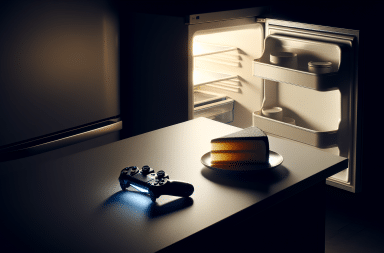The allure of tiny things in the hands of toddlers is a fascinating aspect of early childhood development, drawing intrigue not only from parents but also from educators and psychologists. This attraction to small-sized objects, ranging from miniature cars to pint-sized dolls, reveals much about toddlers' cognitive and emotional development.
Innate Curiosity and Exploration
Toddlers are natural explorers. Their world is a vast, uncharted territory, and tiny objects become fascinating artifacts of this ongoing exploration. These items, often fitting snugly in their small hands, provide a manageable way for toddlers to examine the details of the world around them. This detailed inspection helps toddlers understand the concept of “small,” distinguishing it from “big,” and is important for cognitive development. Tiny things spark immense curiosity in toddlers because they can closely observe, manipulate and interact with these items, making discoveries that feed their insatiable curiosity about how the world works.
Imagination and Play
Tiny things also play a significant role in the development of imagination. For toddlers, a small toy car is not just a toy; it's a vehicle for adventure, capable of transporting them to imaginary worlds. Tiny dolls become characters in intricate narratives that toddlers create, exploring social roles and relationships. Mini toys play is key for emotional and social development, allowing toddlers to express themselves, understand others and navigate the complexities of social interactions.
Development of Fine Motor Skills
Tiny objects are instrumental in the development of fine motor skills. The act of picking up, holding and manipulating small items requires a level of dexterity and coordination that is more challenging than handling larger objects. This manipulation aids in strengthening the small muscles in a toddler's hands and fingers, skills they will need for later tasks such as writing, tying shoelaces and using utensils. Therefore, the attraction to tiny things is not just about curiosity; it's also about the physical development that these objects promote.
Sense of Ownership and Control
For toddlers, the world can often feel overwhelmingly large and beyond their control. Tiny objects, however, fit perfectly into their small hands, offering a sense of ownership and mastery over their environment. This control leads to their developing sense of independence and self-confidence. When a toddler can grasp, move and play with an object entirely on their own, it reinforces their sense of autonomy and their belief in their ability to interact with the world around them.
The fascination toddlers have with tiny things is more than a quirky preference; it's a reflection of their developmental stage, embodying their curiosity, skill development, sense of control and imaginative capabilities. This attraction supports their cognitive, physical and emotional development in multifaceted ways, making tiny objects not just toys but tools for growth. As toddlers navigate through their early years, their penchant for the tiny offers valuable insights into their evolving understanding of the world and their place within it. Ensuring these tiny treasures are safe and suitable for their age can help turn each small discovery into a giant leap in their development.


